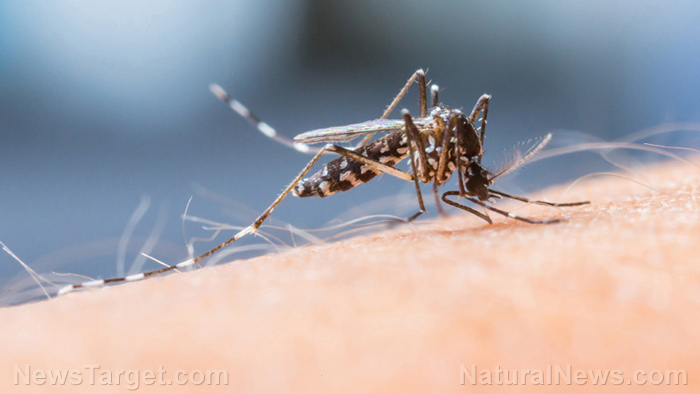
Rotting crops and a rigid food system
It's not just farmers in America throwing away food: From Nigeria to India, food is going to waste because of unbalanced supply systems. But experts say that the surprising thing is, the world isn't actually wasting more food than normal since one-third of global food production goes to landfills.
Because of the pandemic, consumers themselves aren't the source of food waste. Rather, more food is getting dumped before it reaches grocery stores due to ineffective supply chains.
Around the world, food production is handled using "just-in-time methods." This means products from farms are delivered to stores or restaurants within a few days, with the next batch of crops and livestock ready to take its place.
After the coronavirus pandemic hit, it exposed issues in the following chains:
- Decreased trade
- Labor crunches
- Port and trucking issues
- Restaurant shutdowns
All these problems resulted in a backlog of supply that never even reached stores that are running out of supplies. These issues may also negatively affect food security in the country.
Food prices may increase, which will be the worst thing for millions of citizens who are already struggling financially because of the pandemic's fallout.
Marc Bellemare, a co-editor of the American Journal of Agricultural Economics, expressed concern over human welfare, particularly since those who are already worried about where to find food for their families will have even bigger problems.
Pandemics and supply chain disruptions
Food production is at its greatest and global harvests of rice and wheat, two crops that makeup one-third of the world’s calories, could reach all-time highs in the upcoming season.
However, even though food is getting produced, the pandemic has made it difficult to deliver food to those in dire need. Experts point to the far-reaching supply-chain disruptions brought about by the pandemic.
Such is the case of Michael Hill, a farmer who has been growing blueberries in central Florida for five years. Hill and his wife operate two farms that produce at least 700,000 pounds of blueberries annually, which are collected from March 20 to May 1.
But due to the breakdown in the supply chain, retailers now need limited orders. On the other hand, restaurant shutdowns have cut off a lot of the demand for fresh fruits and vegetables during the pandemic.
Because of these changes, Hill was forced to leave 30 to 40 percent of his blueberry crop in the ground, leaving it to be eaten by birds or to rot. (Related: Florida farmers left with mountains of unsold food as coronavirus scrambles supply chain.)
From food waste to food banks
Before the coronavirus pandemic, approximately $1 trillion of food production ended up lost or wasted, with most of it coming from trash at home or 40 percent in America. But with people told to take fewer trips to the store and increasing prices, experts predict that food waste from homes could go down significantly and offset losses in other areas.
Bellemare, who’s also a professor at the University of Minnesota’s Department of Applied Economics in St. Paul, added that it's difficult to determine if there's going to be more or less food waste in total for 2020.
Food waste is another worrying factor of food security, noted Bellemare. Experts are also concerned about world hunger, which might double because of the pandemic. Fortunately, some organizations are taking action to address the disconnect between food waste and hunger.
The U.S. Department of Agriculture has committed to purchasing $3 billion's worth of surplus American meat, dairy and fresh produce. The agency has collaborated with distributors to deliver to food banks and other organizations through an initiative called the “Farmers to Families Food Box Program.”
Meanwhile, food banks and other non-profits have to deal with incoming supplies larger than those that can be efficiently dealt with using their resources.
In the second week of May, Fareshare, the U.K.’s biggest food waste charity, received 758 metric tons of food. This is more than double what the organization would typically receive before the pandemic.
Fareshare partners with regional distribution centers to redistribute food from suppliers and supermarkets to those in need at charities and community groups.
Lindsay Boswell, Fareshare’s chief executive officer, explained that when there is a mismatch between food surplus and what people need, it can be difficult to avoid food waste while also providing what the charity sector requires.
Shoppers now more conscious about food waste
Despite the doom and gloom, experts are glad to report about a glimmer of hope. Since people limit the time they spend outdoors and take fewer trips to the grocery store to avoid catching the virus, people have become more careful when shopping.
Jennifer Molidor, a senior food campaigner at the Center for Biological Diversity, suggests that this can help reduce food waste at home. Molidor also hopes that these new habits will remain in practice even after the coronavirus lockdowns have ended.
According to research commissioned by Hubbub, an environmental group, almost 50 percent of consumers in the U.K. reported that they are throwing away less food.
Tips for reducing food waste during the pandemic
Do your part during the coronavirus lockdowns and follow the tips below to minimize the food waste you produce at home.
Check the supplies you already have in your pantry
Before you head out to the store again, take stock of the items in your pantry. Make a list of items organized by category.
Once you figure out how much baking and frozen products, dairy, meat, fish and fresh produce you have on hand, you can plan a menu for the next few weeks.
Use up perishables
Check expiration dates and take note which fresh vegetables and fruit will go bad in a few days or a week. When preparing a large meal, eat leftovers within a couple of days.
Freeze fresh fruit and vegetables before they go bad and make healthy smoothies using frozen bananas and berries.
Clean out your fridge
In your free time, clean out your refrigerator. Get rid of anything that's expired, moldy or looks unsafe to eat. Doing this also helps prevent food poisoning, the last thing you need during a pandemic.
Cook more
Save money on take-out food by cooking more at home. Learn to bake, or try recipes that you've always wanted to make when you didn't have enough time.
Be more mindful of how you shop, and avoid food waste at home by cooking with what you have.
Sources include:
Please contact us for more information.























